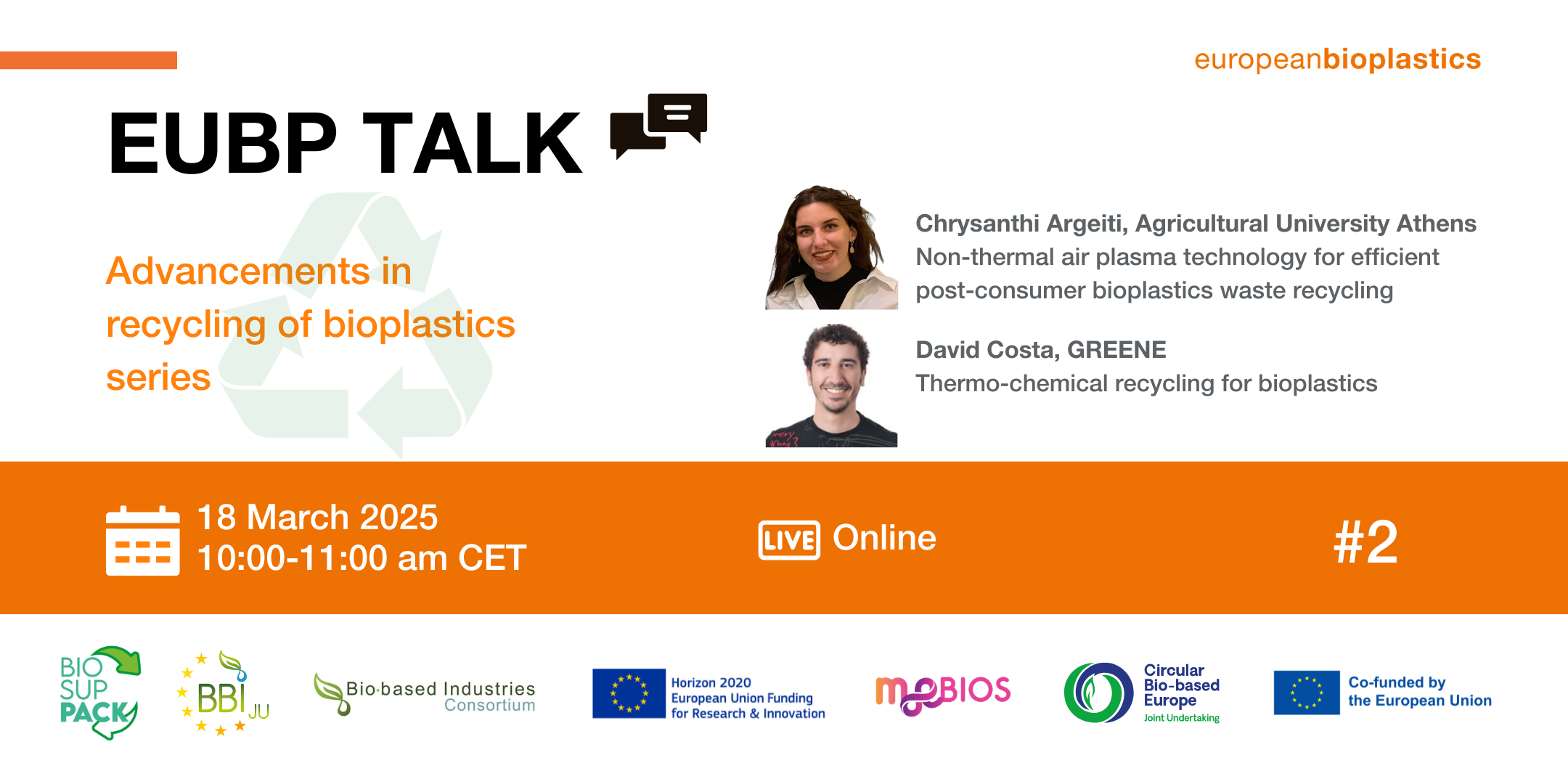EUBP Talk #2: Non-thermal air plasma technology and thermo-chemical recycling for bioplastics
European Bioplastics continues the series of informal online talks focusing on recycling of bioplastics and the scale up of recycling technologies.
During the EUBP Talks, outstanding researchers, organisations and companies interested in monitoring emerging innovation will come together to exchange ideas and solutions in an informal setting.
In our second edition, Chrysanthi Argeiti, from the Agricultural University of Athens, will present on non-thermal air plasma technology for efficient post-consumer bioplastics waste recycling.
The non-thermal air plasma technology is an advanced oxidative process that operates at ambient conditions, eliminating the use of high temperatures and pressures, chemicals and solvents. Relying solely on renewable electricity, plasma enhances resource and energy efficiency, making it a sustainable bioplastic pretreatment method. The reactive environment rich in nitrogen and oxygen species enhances bioplastic degradation, facilitating enzymatic hydrolysis. By optimising key parameters such as energy discharge, treatment duration, and gas composition, the polymer properties can be selectively modified, enhancing surface roughness and inducing partial biopolymer chain fragmentation. Plasma treatment disrupts the polymer backbone, reduces molecular weight, increases the porosity and the hydrophilicity of bioplastics, significantly improving the efficiency of the subsequent enzymatic hydrolysis. This approach leads to an efficient and sustainable biological recycling technology.
David Costa, from GREENE will provide an in-depth look at thermo-chemical recycling for bioplastics.
Thermo-chemical recycling uses heat and chemical processes like pyrolysis and gasification to break down plastic waste into simpler chemical substances, which can then be reused to make new products. Pyrolysis breaks down materials at high temperatures in the absence of oxygen, while gasification turns waste into syngas or chemicals.
In this talk, David willl explore how GREENE and GREENE W2H2 aim to apply these mature technologies to bioplastics, address key challenges and limitations, and discuss the potential for renewable hydrogen production from thermochemical processes applied to biogenic waste.
Don’t miss this opportunity to gain expert insights and engage in discussions on the evolving landscape of bioplastics recycling!

